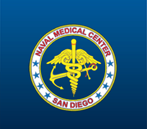Oxytocin Suppresses Substance Use Disorders Associated With Chronic Stress
| Status: | Enrolling by invitation |
|---|---|
| Conditions: | Anxiety, Psychiatric, Psychiatric, Psychiatric |
| Therapuetic Areas: | Psychiatry / Psychology |
| Healthy: | No |
| Age Range: | 18 - 65 |
| Updated: | 12/7/2018 |
| Start Date: | April 20, 2017 |
| End Date: | December 2019 |
The purpose of this study is to determine whether oxytocin will decrease craving to use
drugs/alcohol and stress reactivity following exposure to laboratory-induced stress among
Active Duty Service Members with a dual diagnosis of alcohol/substance use disorder (ASUD)
and post-traumatic anxiety.
drugs/alcohol and stress reactivity following exposure to laboratory-induced stress among
Active Duty Service Members with a dual diagnosis of alcohol/substance use disorder (ASUD)
and post-traumatic anxiety.
The purpose of this study is to determine whether intra-nasally administered oxytocin will
decrease craving to use alcohol and stress reactivity following exposure to
laboratory-induced stress among Active Duty Service Members (AD SMs) with a dual diagnosis of
alcohol/substance use disorder (ASUD) and post-traumatic anxiety (i.e., PTSD or anxiety
disorder NOS).
This is a 2-arm placebo controlled study. Subjects will complete a battery of self-report
questionnaires and behavioral interviews. Baseline assessments of subjective (craving,
stress), physiologic (HR, BP), and neuroendocrine measures (salivary cortisol) will be
collected. These same assessments will be repeatedly collected throughout the testing portion
of the study. Subjects will receive acute administration of intra-nasal oxytocin or placebo
and will then be exposed to a laboratory-induced social stressor. They will be asked to give
a short speech and perform arithmetic in front of a panel of judges. Following the task,
additional post-task assessments of the subjective, physiological, and neuroendocrine
measures will be completed over the next hour.
decrease craving to use alcohol and stress reactivity following exposure to
laboratory-induced stress among Active Duty Service Members (AD SMs) with a dual diagnosis of
alcohol/substance use disorder (ASUD) and post-traumatic anxiety (i.e., PTSD or anxiety
disorder NOS).
This is a 2-arm placebo controlled study. Subjects will complete a battery of self-report
questionnaires and behavioral interviews. Baseline assessments of subjective (craving,
stress), physiologic (HR, BP), and neuroendocrine measures (salivary cortisol) will be
collected. These same assessments will be repeatedly collected throughout the testing portion
of the study. Subjects will receive acute administration of intra-nasal oxytocin or placebo
and will then be exposed to a laboratory-induced social stressor. They will be asked to give
a short speech and perform arithmetic in front of a panel of judges. Following the task,
additional post-task assessments of the subjective, physiological, and neuroendocrine
measures will be completed over the next hour.
Inclusion Criteria:
- Active Duty Service Members, any service branch; age 18-65 years.
- Meets clinician assessment for current PTSD OR anxiety disorder NOS OR scores on DASS
> 10 on Anxiety or > 19 on Stress.
- Meets clinician assessment for alcohol use disorder (AUD) OR scores >8 on AUDIT.
- If meet current or lifetime criteria for another substance disorder, must indicate
that AUD is primary.
- Subjects taking psychotropic medications will be required to be maintained on a stable
dose for at least two weeks before study initiation (unless at physician's discretion
following psychological consult).
- Negative urine drug screen test and BAC =0.
- Able to comprehend English.
- Able to provide informed consent and function at an intellectual level sufficient to
allow completion of the assessment instruments.
- Must consent to random assignment to oxytocin or placebo.
Exclusion Criteria:
- Positive urine drug screen (except marijuana) or BAC > 0.
- Untreated subjects currently symptomatic of psychotic or bipolar affective disorders.
- Subjects with current suicidal or homicidal ideation and intent, who would present a
serious suicide risk.
- Subjects on psychotropic drugs that have been initiated during the past 2 weeks
(unless approved at physician's discretion following psychological consult).
- Subjects with a history of a major medical illness (e.g., endocrine, cardiovascular,
central nervous system disorders, peripheral neuropathy, or pulmonary disease) or
other acute or unstable medical condition that might interfere with safe conduct of
the study or accurate interpretation of the results.
- Subjects experiencing withdrawal symptoms as reported by Clinician or systolic BP≥160
mmHg, diastolic BP ≥100 mmHg and resting HR ≥100 bpm.
- Subject is considered unsuitable for the study in the opinion of study PI or AIs for
any other reason.
We found this trial at
1
site
Naval Medical Center - San Diego We are the largest and most comprehensive military healthcare...
Click here to add this to my saved trials
